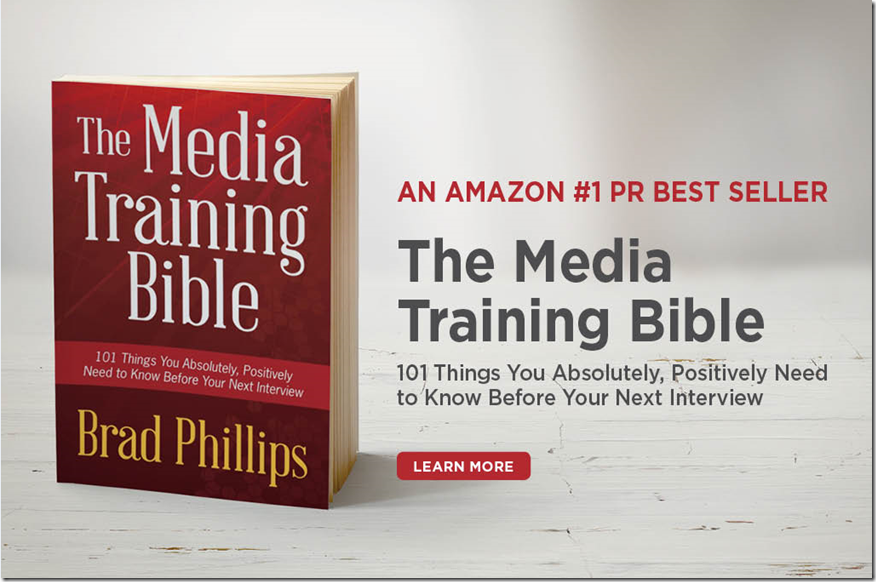Three Reasons To Interview By Phone Instead of Email
This is an excerpt from The Media Training Bible: 101 Things You Absolutely, Positively Need to Know Before Your Next Interview, available in soft cover here and for the Kindle here.
Many spokespersons prefer to do media interviews by email, since the format feels familiar and removes some of the unpredictability of a telephone or in-person interview. Email interviews have their place. For example, you might conduct an interview by email when:
You have an existing relationship with the reporter.
The reporter is seeking technical information that is more easily communicated in writing.
The reporter needs a quick answer to a straightforward question, is facing a bruising deadline, or is clarifying something you said in an earlier interview.
The reporter prefers to do the interview by email.
Logistical issues prevent speaking by phone or in person.
The correspondence is about a highly controversial issue, and you must maintain a paper trail.

While email interviews can be useful, they are too often used by controlling executives and nervous spokespersons who do everything possible to avoid picking up the phone. Don’t do interviews by email simply because it makes you more comfortable; doing so can be counterproductive. Here are three reasons to avoid making email interviews a habit:
- They preclude useful conversation: Good reporters listen to your answers closely in order to ask informed follow-up questions. Those follow-ups are often helpful to your cause—they can help you gauge the reporter’s perspective, clarify incorrect points, and add context to your message.
- They prevent personal relationships: Media relations is about relationships, which are especially important when you’re accused of wrongdoing. Reporters who know you are more likely to give you the benefit of the doubt, reducing the risk of negative stories and improving the tone of coverage.
- They appear obstructionist (sometimes): The medium in which you choose to communicate often says a lot. If you respond to a controversial topic by email, the reporter may say, “In a written statement, Company X said…” That may look obstructionist to the audience, especially if your critics were willing to speak to the reporter. The contrast of their willingness to talk and your “email-only” approach may make your critics appear more credible.

The Power of Unintended Meanings
A clever book called The Lexicon of Intentionally Ambiguous Recommendations lists dozens of things employers can say to people who call for references on lousy former employees.
To describe a lazy candidate, you can say, “In my opinion, you will be very fortunate to get this person to work for you.”
To describe an unproductive candidate, it suggests, “I can assure you that no person would be better for the job.”
And to describe a person with lackluster credentials, it recommends, “All in all, I cannot say enough good things about this candidate or recommend him too highly.”
Email interviews carry the same risk of unintended meanings (which are often less likely to occur in person, since your vocal emphasis and body language help your points come across more clearly). Show your typed responses to a few people before sending them, and parse every word to ensure you haven’t given the reporter a quote you’ll come to regret.
Click here for more information about The Media Training Bible: 101 Things You Absolutely, Positively Need to Know Before Your Next Interview.


